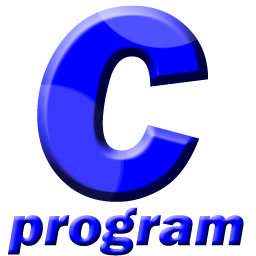C Programming Language

In computing, C is a general-purpose programming language initially developed by Dennis Ritchie between 1969 and 1973 at Bell Labs.
Its design provides constructs that map efficiently to typical machine instructions, and therefore it found lasting use in applications that had formerly been coded in assembly language, most notably system software like the Unix computer operating system.
Many later languages have borrowed directly or indirectly from C, including: C#, D, Go, Java, JavaScript, Limbo, LPC, Perl, PHP, Python, and Unix's C Shell.
The most pervasive influence on these languages has been syntactical, and they tend to combine the recognizable expression and statement syntax of C with underlying type systems, data models, and semantics that can be radically different. C++ started as a preprocessor for C and is currently nearly a superset of C.
The C language has the following characteristics:
-
There are a small, fixed number of keywords, including a full set of flow of control primitives: for, if, while, switch, and do..while. There is basically one namespace, and user-defined names are not distinguished from keywords by any kind of sigil.
-
There are a large number of arithmetical and logical operators, such as +, +=, ++, &, ~, etc.
-
Function return values can be ignored when not needed.
-
Typing is static, but weakly enforced: all data has a type, but implicit conversions can be performed; for instance, characters can be used as integers.
-
Low-level access to computer memory is possible by converting machine addresses to typed pointers.
-
Procedures are a special case of function, with a dummy return type void.
-
Functions may not be defined within the lexical scope of other functions.
C is often used for "system programming", including implementing operating systems and embedded system applications, due to a combination of desirable characteristics such as code portability and efficiency, ability to access specific hardware addresses, ability to pun types to match externally imposed data access requirements, and low run-time demand on system resources.

